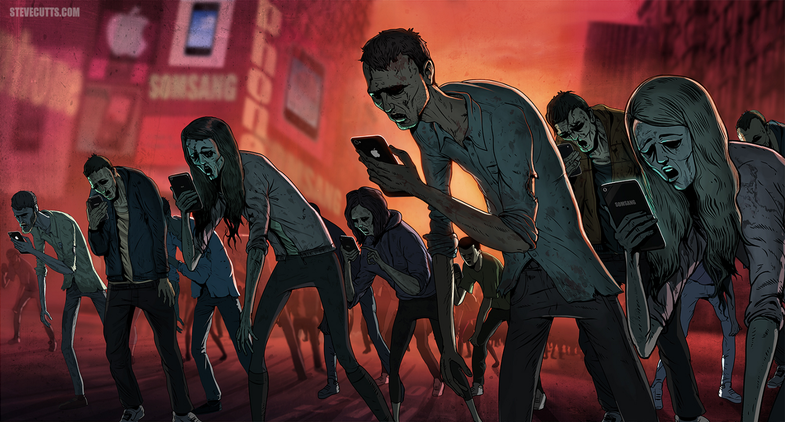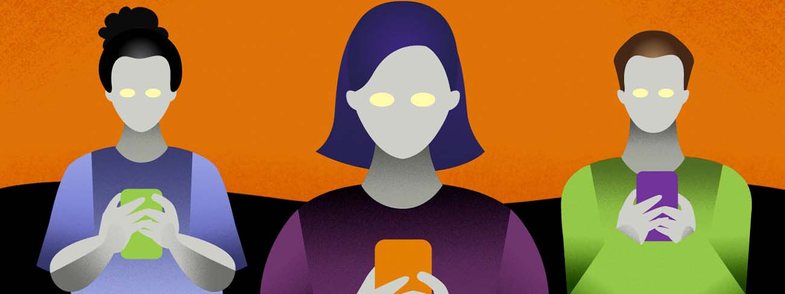
No matter how many times we "catch ourselves mat" by moving our finger up uncontrollably, always looking for nothing in fact, without realizing that they have spent hours in front of the screen and without doing anything productive. Have you heard of "Zombie Scrolling"?
"Zombie Scrolling Syndrome" is a term coined by security company McAfee in 2016 to describe the effects of cell phone addiction. It is defined as "mindless movement, without destination or real benefit, simply by looking at what comes before you."
According to a study, in a single day, an average person walks through at least 100 meters in length just by seeing what is displayed on the screen through social networks.
"Psychological and neurobiological factors are at play and our brains are prepared to respond to social media, because it is a kind of reward system and in one form or another entertainment, although it often happens for no reason," explains Don Grant, Director of Newport Outpatient Services in Santa Monica. Like rats in a lab, constantly pulling a lever in the hope of getting pleasure, we keep moving in search of an online experience that will trigger a pleasurable dopamine release. It is the random nature of these rewards, whether in the form of likes, positive feedback, or an ad or post that grabs us, that constitutes common behavior.
89% of people feel some kind of anxiety and insecurity when they do not have the phone with them.

How does this action of "Zombie Scrolling" affect our mental health?
The "real" zombies have no consciousness or emotions, but the zombies of these uncontrolled movements have. This is what makes the inability to stop mindless movement so detrimental to mental health.
"For young people, the impact of what they are seeing on social media can be extremely disruptive, and the longer they do it, the more it will affect them," says Dr. Grant. "Movement does not just mean looking at something, emotions are related and it is personal." "Perfect" images carefully curated in the application cause feelings of envy and inferiority. In addition to negative emotions, it also prevents us from engaging in positive experiences.
Për më tepër, kjo gjendje vazhdon edhe pasi ne ndalojmë së lëvizuri pa mendje, duke u shfaqur si lodhje e syve dhe trurit, vështirësi për t’u fokusuar, një ndjenjë shkëputjeje emocionale dhe simptoma të tjera që shkakton varësia nga telefoni (që sigurisht duhet t’i keni vënë re). Një tjetër pasojë negative që shkakton ky veprim është pagjumësia.
4 hapat për të hequr dorë nga kjo “sëmundje”
- Punoni me veten dhe mësoni se si të largoni varësinë nga telefoni.
- Përdorni të dhënat në telefon për të mbajtur shënim se sa kohë po shpenzoni në secilën platformë.
- Më pas, identifikoni situatat në të cilat po e bëni këtë veprim, kur po qëndroni më tepër para ekranit dhe kuptoni pse po ndodh pikërisht në ato momente. A jeni i mërzitur? Të shqetësuar?
Decide what you want to change and make a plan to help you achieve your goals by avoiding the phone as much as possible on a daily basis.
- If you want to stop this "zombie scrolling" replace it with another behavior, with another activity. It is a good opportunity to get to know yourself better, to do activities that you had time without doing, you can read a book, etc.
Mental health doctors are constantly calling for minimizing time in front of the screen, especially when it comes to social networking.





